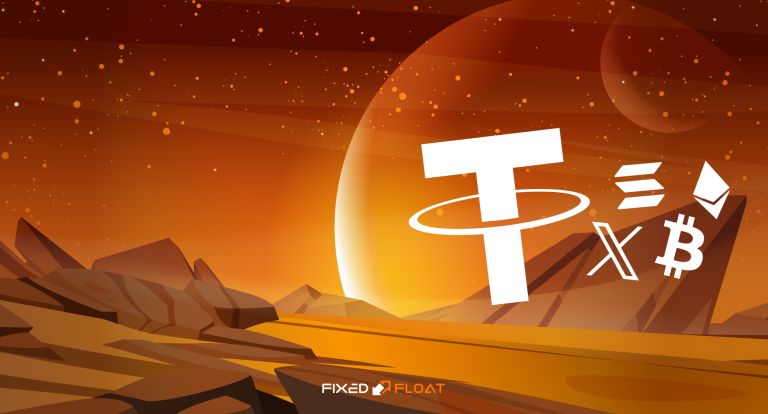- BCH up 35%
- Crossmark — XRP wallet from the Ripple team
- The first bill to regulate cryptocurrencies in South Korea
- Vitalik Buterin expressed support for projects affected by the SEC
- Coinbase accuses SEC of abuse of power
- KuCoin Announces New Verification Rules
- The number of Bitcoin whales decreased by 23%
BCH up 35%
On the night of June 29-30, Bitcoin Cash (BCH) experienced an amazing increase in price, increasing by 35% to reach $325. This is the highest level in the last 14 months. Currently, the rate of this cryptocurrency is about $290. It should be noted that BCH has risen by as much as 130% over the past week.
This impressive growth is likely due to the increase in BCH trading against the Korean Won (KRW) on the popular Upbit exchange. According to CoinGecko, BCH trading volume on this platform has been a staggering $676 million over the past 24 hours. It is noticeable that the volume of BCH/KRW is almost 5.5 times the volume of BCH/USD on the Coinbase platform, which is only $101 million. It is interesting to note that IntoTheBlock analysts recorded the highest total BCH transaction volume over the past year, which exceeded $750 million. Overall, these factors point to the impressive growth and popularity of Bitcoin Cash.
The impressive rise in the BCH price may also be due to the active participation of traders who prefer to hold this asset for a short time. Over the past 30 days, the number of such investors has increased by 33%. This behavior may indicate that traders are looking to make the most of rapidly changing market conditions. BCH capitalization has also reached an impressive level of almost $6 billion and has grown by 33.6% in the last 24 hours. This data highlights the growing interest and trust in Bitcoin Cash, attracting the attention of investors from all over the world.
Crossmark — XRP wallet from the Ripple team
The development team from the fintech company Ripple has introduced a new innovative product - the Crossmark browser wallet for the XRP Ledger network ecosystem. This wallet, similar in functionality to MetaMask, is the first of its kind based on the XRP Ledger and supports most of the built-in features and types of transactions. The Crossmark extension is expected to be available for use in popular browsers such as Chrome, Opera, and Firefox, with an interface similar to ConsenSys' MetaMask application.
A unique feature of Crossmark is its ability to integrate with the XUMM mobile wallet, which is also used to store XRP. In addition, the developers plan to integrate other solutions, such as Gem Wallet and Ledger. However, it is worth noting that there are currently no tools for interaction between different wallets on the XRP Ledger, according to the programmers.
Currently, an early version of Crossmark is in the testing phase with a limited number of users. Some features that are planned to be included in the extension are not yet available. The development team plans to release the final version of the wallet in the "coming months", after finalization and implementation of the intended functions. This is an important event for the XRP Ledger community and may attract new users to the Ripple ecosystem.
The first bill to regulate cryptocurrencies in South Korea
South Korea has passed a bill that is intended to regulate cryptocurrencies in the country. This bill combines as many as 19 separate bills covering various aspects related to cryptocurrencies. It includes measures aimed at regulating taxation, penalties for market manipulation, unfair trading and other violations related to cryptocurrency transactions.
This bill aims to create a transparent and stable environment for the development of the cryptocurrency market in South Korea. It is designed to protect the interests of investors, prevent fraud and dishonest practices, and ensure compliance with laws and regulations in the field of cryptocurrencies. The passage of this bill is an important step for the South Korean government in the development of its cryptocurrency industry. He demonstrates a serious attitude to the problems associated with cryptocurrencies and a desire to ensure stability and sustainability in this area.
Vitalik Buterin expressed support for projects affected by the SEC
Vitalik Buterin, co-founder of Ethereum, expressed his support for projects affected by the actions of the US Securities and Exchange Commission (SEC). He expressed regret that many crypto projects were under pressure from the regulator. The SEC has classified Polygon (MATIC) and Solana (SOL) tokens, as well as other coins, as securities in lawsuits against crypto exchanges Binance and Coinbase. However, representatives of these projects do not agree with such a definition provided by the SEC.
Buterin said that these projects do not deserve such status, and if Ethereum ends up winning by ousting all other blockchains from exchanges, this will not be the most worthy way to win. He emphasized that in the long run such a victory would not be a true victory. The developer also noted that the real competitor for Ethereum is not other blockchains, but a rapidly developing centralized world that is trying to impose its own rules.
Buterin expressed his desire that all deserving projects receive a fair decision in this current situation. His support is an important signal to the community and shows his commitment to justice and the development of innovative projects in the cryptographic field.
Coinbase accuses SEC of abuse of power
Coinbase has said that the SEC has gone beyond its mandate to regulate cryptocurrencies. In response to the regulator's lawsuit, Coinbase representatives indicated that the assets listed in the lawsuit are not investment contracts and, therefore, cannot be equated with securities. The company cited the Howey test, which confirms that cryptocurrencies in the secondary exchange market are not included in agreements for the sale of assets tied to contracts. In addition, token issuers have no obligations to investors.
Coinbase also noted a change in the position of SEC Chairman Gary Gensler regarding the authority of the regulator, which occurred after his appointment in April 2021 and until mid-2022. The company recalled that it has been in compliance with all regulatory requirements for many years and has regularly contacted the SEC for direct advice on the application of federal securities laws in relation to digital assets.
This disagreement between Coinbase and the SEC highlights the need for a clear and concise regulatory environment for the cryptocurrency industry. It also raises questions about the regulator's competence and understanding of cryptocurrencies and their role in the market. The resolution of this case will have significant implications for the development and regulation of digital assets in the US.
KuCoin Announces New Verification Rules
KuCoin, a popular cryptocurrency exchange, has announced the implementation of new rules for the user verification (KYC) procedure, which will come into force in the second half of July. From July 15, the exchange will introduce mandatory verification for new users and restrict access to certain services for existing customers without KYC. The latter will only have spot sell and withdrawal orders available, while the ability to make deposits will be blocked. In addition, restrictions will be introduced for margin and futures accounts, as well as for KuCoin Earn and ETF services.
KuCoin is a cryptocurrency exchange that supports spot, margin and P2P trading. The platform is actively developing its ecosystem, which includes the KuCoin Community Chain blockchain with an internal KCS token, the KuCoin Wallet, the Windvane NFT marketplace, and a number of DeFi applications. These steps to introduce mandatory user verification are part of KuCoin's strategy to improve security and compliance with regulatory requirements, as well as to ensure a reliable and transparent trading experience on the platform.
The number of Bitcoin whales decreased by 23%
Since the beginning of 2021, the number of large Bitcoin holders (the so-called "Bitcoin whales" with a balance of more than 1000 BTC) has decreased by 23% from the historical maximum reached at the beginning of the year. This indicates changes in the distribution of large bitcoin assets and possible shifts in the position of bitcoin holders. This trend may reflect both the sale of large holders and the redistribution of assets between various market participants. Such changes in the share of Bitcoin whales can affect market liquidity and investor perception.










